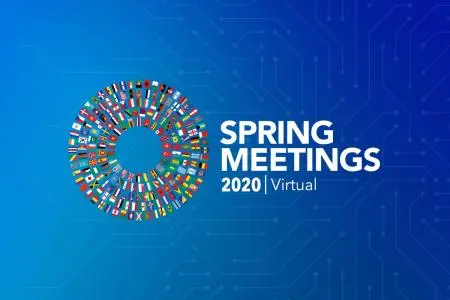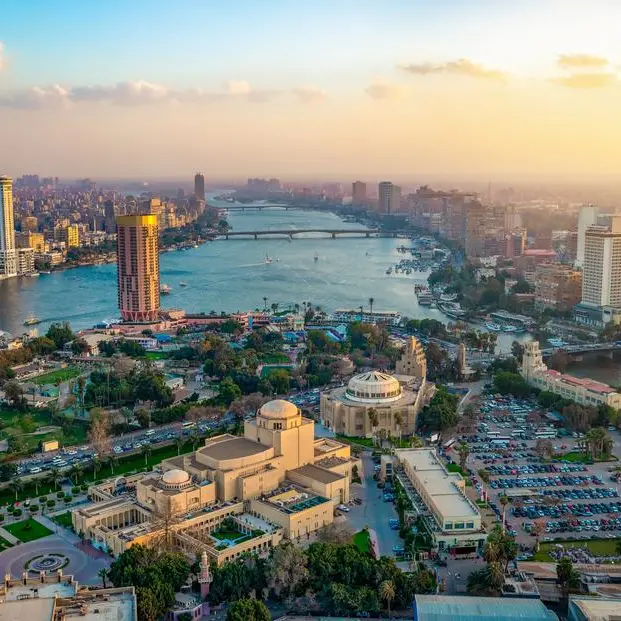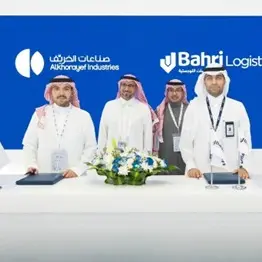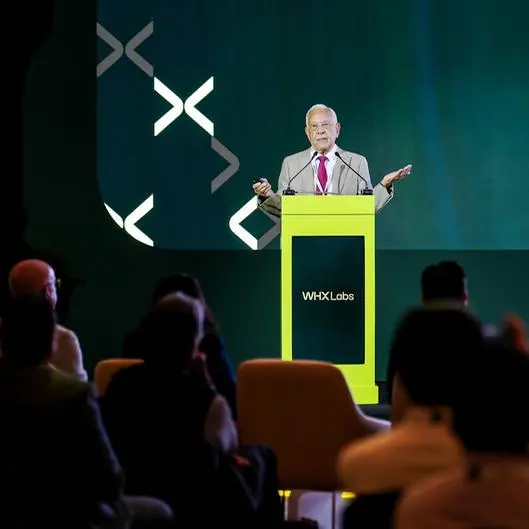PHOTO
Washington, DC : – Kristalina Georgieva, head of the International Monetary Fund (IMF), chaired a discussion last week with Neil Ferguson, Director of the Abdul Latif Jameel Institute for Disease and Emergency Analytics at Imperial College London, and his colleague, Azra Ghani, on the impact of the coronavirus pandemic on livelihoods. The discussion was held as part of the IMF’s annual Spring Meeting, hosted online this year due to COVID-19.
Addressing the IMF’s forecast that the global economy will begin to recover in the second half of 2020, Ferguson suggested that there will be variation by geography: “The countries that decide to mostly mitigate -- but not necessarily stop -- the pandemic will see a much higher impact in the short term but will, in some senses, put the pandemic behind them.” By contrast, Ferguson anticipated that most high-income countries and China would need to keep substantial controls in place until a vaccine is discovered, which he expected in 2021.
Noting the integrated relationship between health and livelihoods, Ghani said: “You cannot have a health system without a workforce. You cannot have a workforce without ensuring those livelihoods are sustained.”
In concluding the meeting, Georgieva noted the importance of collaborations -- like that between the IMF and the Jameel Institute -- for developing the policy response. “This conversation re-affirms my conviction that in terms of economic policy action in this environment we still need the macroeconomists but we also need the epidemiologists to make the right decisions.”
The Jameel Institute is at the heart of the Imperial College COVID-19 Response Team and has been advising policymakers around the world on the spread and control of the pandemic. Its advice led to dramatic shifts in policy in the UK and the US in March, triggering the lockdown and strict social distancing measures that are still in place in those countries and across Europe.
The Jameel Institute was co-founded in 2019 by Imperial College London and Community Jameel, the philanthropy of the Jameel family, with the mission to combat disease threats worldwide. Bringing together global health researchers in Imperial’s School of Public Health and drawing on Imperial’s expertise in data analytics, epidemiology and economics, the Jameel Institute aims to improve our understanding of diseases and health emergencies in the most vulnerable populations across the globe. The Institute links governments, research institutions and communities to develop practical and effective long-term solutions, shape health policy and deliver a better quality of life for all..
For more information about the Jameel Institute and its mission, please check video here.
-Ends-
For further information, please contact Abir Ben Bechir
abir@communityjameel.org / +971551012621
About Imperial College London
Imperial College London is one of the world’s leading universities. The College’s 17,000 students and 8,000 staff are expanding the frontiers of knowledge in science, medicine, engineering and business, and translating their discoveries into benefits for our society.
Founded in 1907, Imperial builds on a distinguished past – having pioneered penicillin, holography and fibre optics – to shape the future. Imperial researchers work across disciplines to improve health and wellbeing, understand the natural world, engineer novel solutions and lead the data revolution. This blend of academic excellence and its real-world application feeds into Imperial’s exceptional learning environment, where students participate in research to push the limits of their degrees.
Imperial is one of the world’s most international universities, with academic ties to more than 150 countries. Reuters named the College as the UK’s most innovative university because of its exceptional entrepreneurial culture and ties to industry.
About Community Jameel
Driven by a commitment to creativity, entrepreneurship, innovation, and youth, Community Jameel works across major fields of development: livelihoods, the arts, education, health, climate, and evidence. Community Jameel is active worldwide, by directly implementing programmes and by collaborating with major international institutions and grassroots organisations.
Community Jameel was established in 2003 to continue the Jameel family's tradition of supporting the community, a tradition started in the 1940s by the late Abdul Latif Jameel, founder of the Abdul Latif Jameel business, who throughout his life helped tens of thousands of disadvantaged people improve their lives.
The term “Community Jameel” refers broadly to several distinct, separate and independent legal entities. Community Jameel is not itself a corporate entity, association or conglomerate run by an overarching parent company but merely refers to a group of distinct and wholly independent separate legal entities that are collectively referred to as “Community Jameel”.
Send us your press releases to pressrelease.zawya@refinitiv.com
© Press Release 2020Disclaimer: The contents of this press release was provided from an external third party provider. This website is not responsible for, and does not control, such external content. This content is provided on an “as is” and “as available” basis and has not been edited in any way. Neither this website nor our affiliates guarantee the accuracy of or endorse the views or opinions expressed in this press release.
The press release is provided for informational purposes only. The content does not provide tax, legal or investment advice or opinion regarding the suitability, value or profitability of any particular security, portfolio or investment strategy. Neither this website nor our affiliates shall be liable for any errors or inaccuracies in the content, or for any actions taken by you in reliance thereon. You expressly agree that your use of the information within this article is at your sole risk.
To the fullest extent permitted by applicable law, this website, its parent company, its subsidiaries, its affiliates and the respective shareholders, directors, officers, employees, agents, advertisers, content providers and licensors will not be liable (jointly or severally) to you for any direct, indirect, consequential, special, incidental, punitive or exemplary damages, including without limitation, lost profits, lost savings and lost revenues, whether in negligence, tort, contract or any other theory of liability, even if the parties have been advised of the possibility or could have foreseen any such damages.



















